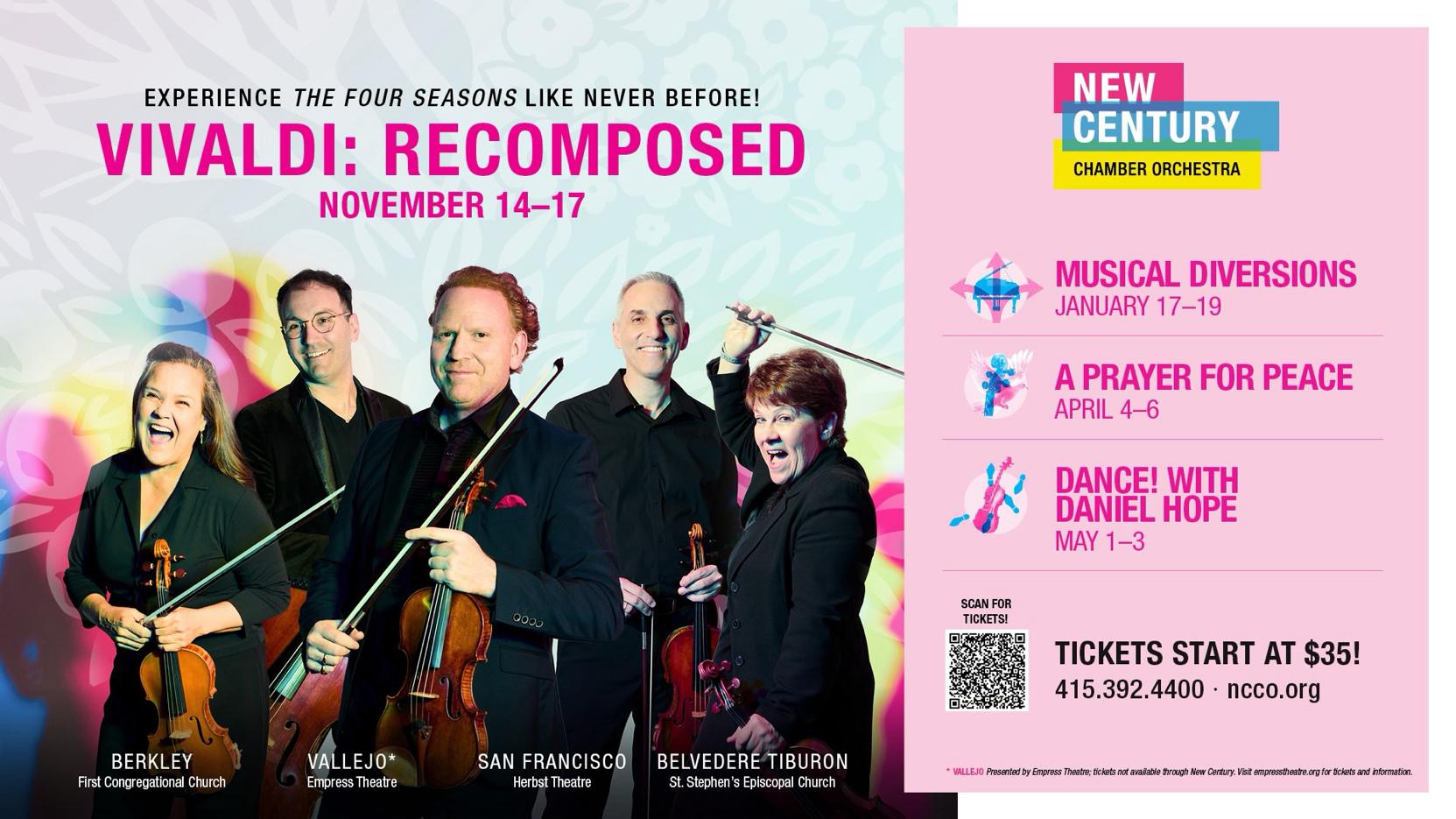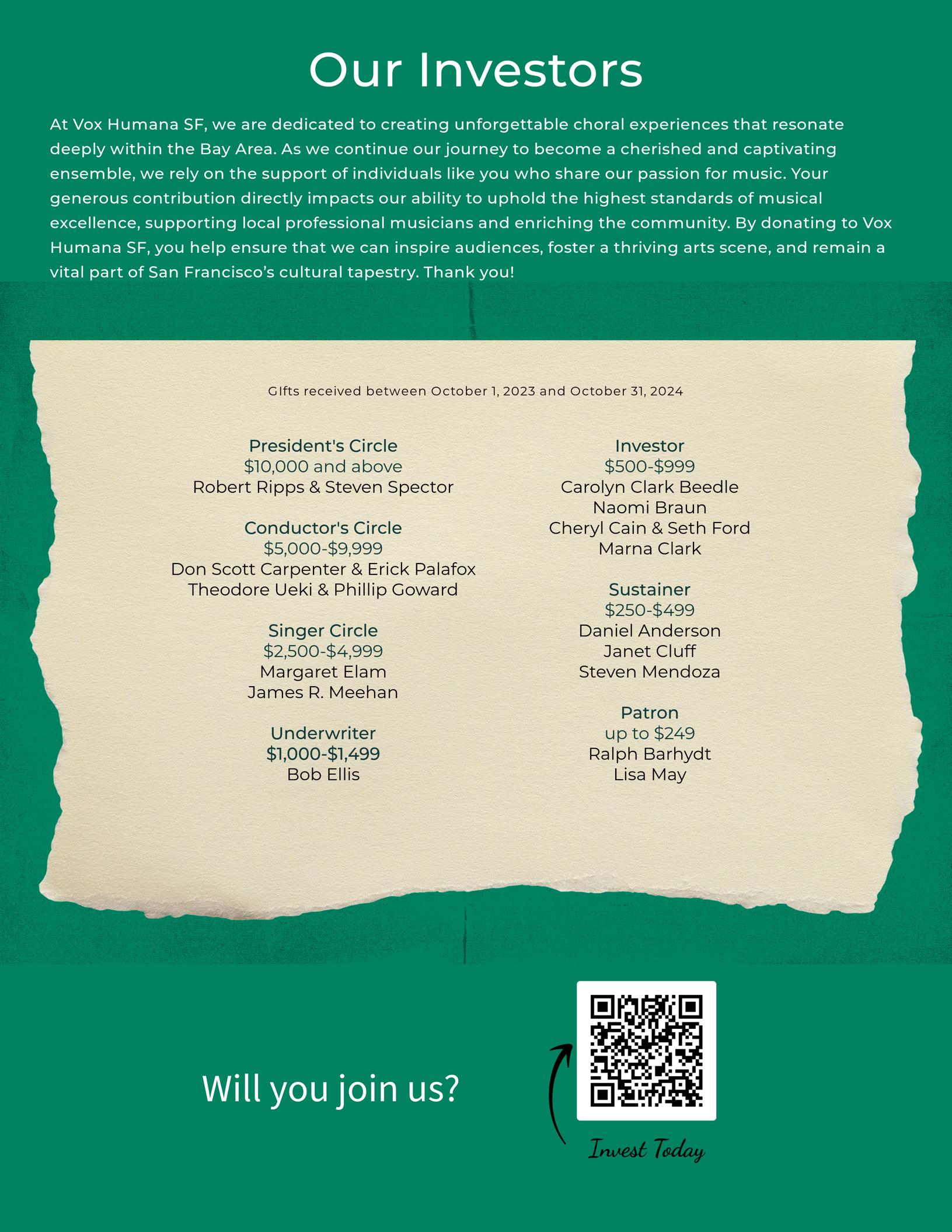
VOX HUMANA SF


DON SCOTT CARPENTER FOUNDER AND GENERAL DIRECTOR




DON SCOTT CARPENTER FOUNDER AND GENERAL DIRECTOR


GRACE CATHEDRAL, SAN FRANCISCO
November 8, 2024, 7:30 pm


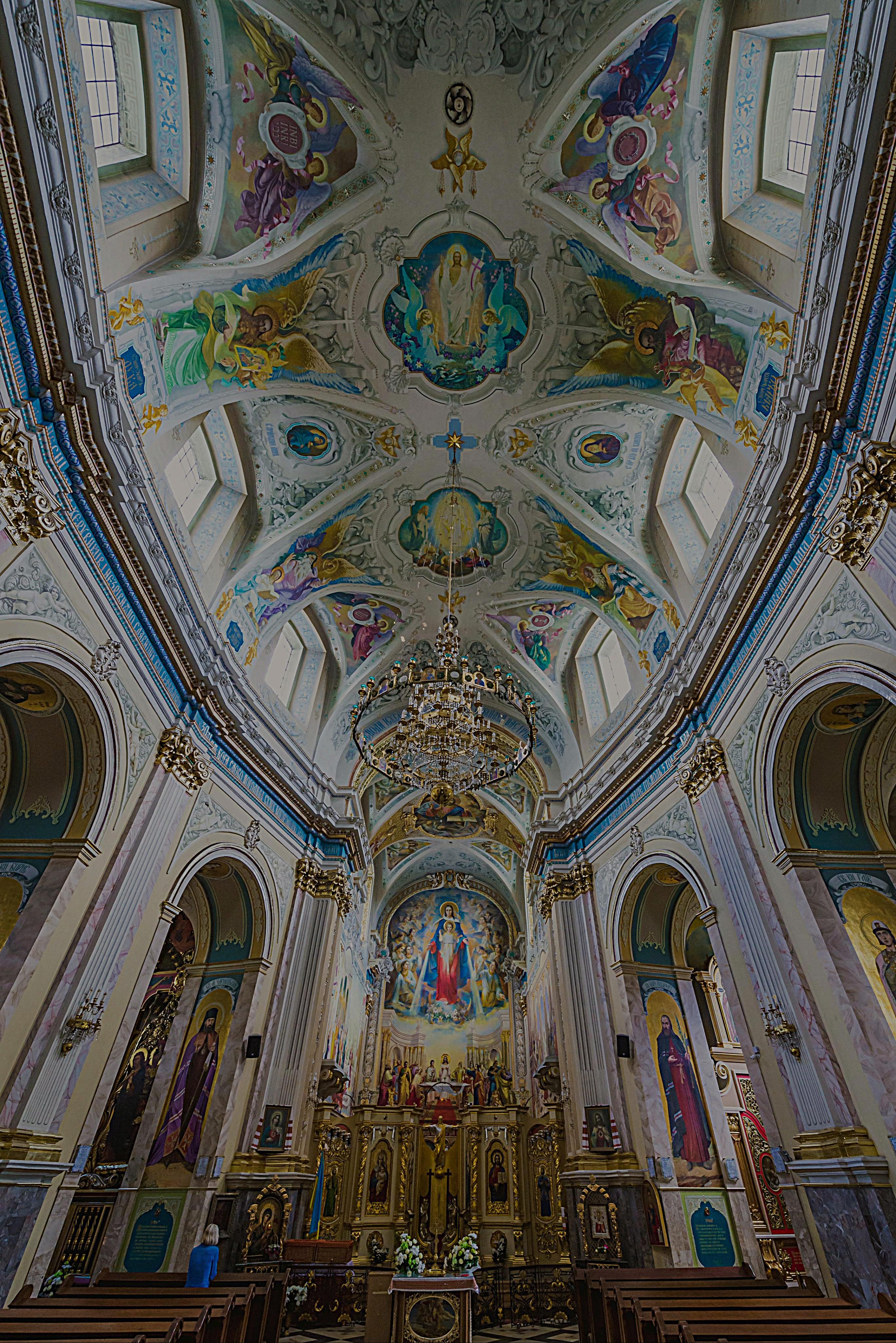
DON SCOTT CARPENTER
Founder & General Director
SAM FAUSTINE
Assistant Music Director

Founded in 2023, Vox Humana SF is a dynamic professional chorus dedicated to celebrating the beauty and power of the human voice within San Francisco's vibrant and diverse cultural landscape.
With a desire for versatility and excellence, we perform a wide range of choral music, spanning centuries and genres. From the timeless masterpieces of the classical repertoire to the innovative works of contemporary composers, we offer performances that are both artistically enriching and emotionally compelling.
BOARD OF DIRECTORS
ROBERT RIPPS President
MARGARET ELAM Secretary
STEVEN J. SPECTOR Treasurer
DON SCOTT CARPENTER
General Director
CHERYL CAIN
Artist Representative
THEODORE UEKI
Our commitment to quality is evident in our meticulous preparation and the high standards of our performances. We breathe new life into beloved traditional works while embracing the future of choral music by commissioning and performing new compositions from living composers. This dedication to both tradition and innovation ensures that our programs remain fresh, engaging, and relevant.
Believing in the power of choral music to inspire, uplift, and unite, we are devoted to making our performances accessible to a broad audience and fostering a deep connection with our community. Through our concerts and collaborative projects, we aim to enrich the cultural fabric of San Francisco and beyond.
In all that we do, we seek to create transformative experiences for our audiences, celebrating the profound emotional and expressive potential of the human voice. We are not just a performing ensemble but a vibrant community of artists sharing the joy and beauty of choral music with the world.
Vox Humana SF, Inc.
1559 Sloat Blvd. Suite B #122 San Francisco, CA 94132
Vox Humana SF is a 501(c)3 not-for-profit corporation.
Cover art image by Konrad Zelazowski; used by permission Cathedral of the Immaculate Conception of the Blessed Virgin Mary, formerly Dominican Church in Ternopil, administrative center of the Ternopil Oblast region in Western Ukraine

Welcome to “Vespers,” the opening concert of Vox Humana SF’s second season! We are delighted to have you with us for an evening of music that captures the beauty, mystery, and spiritual depth of the world. Tonight’s program draws on a rich tradition of choral music, with works that reflect the timeless essence of the Vespers service, offering a moment of peace and reflection in our otherwise hectic world.
As we begin our second season, we are committed to sharing the transformative power of choral music with our San Francisco community and beyond. Our repertoire for “Vespers” includes some of the most evocative pieces in the choral canon, featuring selections by two master composers of Russian sacred music: Dmitry Bortniansky and Sergei Rachmaninoff. Their works embody the profound expressiveness and spiritual intensity of the Eastern Orthodox tradition, providing a captivating musical journey that spans centuries. Ukrainian Bortniansky’s liturgical compositions, with their soaring harmonies, evoke the solemnity of ancient worship, while Rachmaninoff’s All-Night Vigil offers a deeply emotional and transcendent experience through its lush textures and stirring melodies.
This evening’s performance is more than just a concert it is an invitation to pause and embrace music as a space for contemplation, solace, and connection. We are deeply grateful to you, our audience, for your support and presence, which enable us to continue our mission of elevating the choral arts and creating meaningful experiences through music.
A myriad thanks go to our community partners, patrons, and every member of Vox Humana SF for bringing this program to life. We give special appreciation to Robert Ripps & Steven Spector who sponsored this evening’s concert. Together, we celebrate the power of music to unite and inspire.
I hope you are already making plans to join us February 14-16, 2025, for our second set, Voyages , in Belvedere, Healdsburg, and San Francisco. Details may be found at VoxHumanaSF.org/voyages
Let us now embark on this musical journey together, finding inspiration and unity in the profound beauty of “Vespers.” Thank you for joining us and sharing this moment.

FOUNDER & GENERAL DIRECTOR
DON SCOTT CARPENTER , FOUNDER AND GENERAL DIRECTOR a Louisville native, is a distinguished composer, conductor, and organist based in San Francisco. As the Founder and General Director of Vox Humana SF, he engages audiences through profound musical interpretations. Currently, he serves as the Organist and Director of Music & Engagement at Lakeside Presbyterian Church, where he leads a multi-faceted program, as well as the Lakeside Community Choir and Camerata. Mr. Carpenter’s extensive experience includes prestigious roles such as Executive Director of the American Bach Soloists, Music Director of San Francisco Renaissance Voices, and General Director of the Santa Fe Desert Chorale. His choirs have performed in celebrated venues worldwide, including Carnegie Hall and the Dom in Salzburg. He has commissioned world premieres and produced recordings including Shalom and O Sing Joyfully. With an unwavering commitment to musical excellence and innovation, Mr. Carpenter is dedicated to enriching the cultural landscape of San Francisco and beyond.
Ukrainian composer Dmitry Bortniansky is one of the most prominent composers of sacred music in the Russian Orthodox tradition, renowned for his integration of Western European musical styles with the distinct liturgical practices of the Orthodox Church. His works, including the sacred concertos and cherubic hymns, significantly shaped the development of choral music and continue to be celebrated for their spiritual depth and artistic sophistication.
The sacred concerto is a prime example of the sacred concerto form, a genre that gained popularity in Russia during the 18th century. It is structured with multiple sections, each offering a different emotional and musical response to the sacred text. The concertos are not liturgical pieces in the traditional sense but serve as devotional works meant for performance during special services or at the Imperial Court Chapel. This work begins with solemn and contemplative passages that evoke a sense of prayerful introspection, which then give way to more animated and joyful sections, reflecting themes of praise and thanksgiving.
This concerto is particularly notable for its clear phrasing and harmonic clarity. His use of homophonic textures makes the sacred text accessible and easy to understand, while the occasional polyphonic passages add depth and a sense of spiritual elevation. This balance between simplicity and complexity allows the music to communicate a powerful sense of devotion and reverence.
The concerto form that Bortniansky employs in his sacred concertos was revolutionary in Russian sacred music, as it allowed for more elaborate choral writing than the traditional chants and liturgical hymns and laid the groundwork for future generations of Russian composers, including Tchaikovsky and Rachmaninoff, who would further explore the expressive possibilities of Orthodox choral music.
The Cherubic Hymn, a central part of the Divine Liturgy in the Orthodox Church, is sung during the Great Entrance, when the clergy carry the consecrated gifts to the altar. It begins with the words, "Let us who mystically represent the Cherubim," calling the congregation to enter a state of prayerful reverence. In his setting of Cherubic Hymn No. 7, Bortniansky captures the solemnity and transcendence of this moment in the liturgy. Bortniansky composed several settings of the Cherubic Hymn, with No. 7 being one of the most renowned for its serene beauty and lyrical quality. The hymn opens with a meditative, homophonic texture, creating a calm and reverent atmosphere. As the hymn progresses, the music becomes more expansive, with harmonies that convey a sense of awe and the divine mystery being celebrated.
The melodic lines in Cherubic Hymn No. 7 are carefully crafted to enhance the liturgical text, ensuring that the music serves as an extension of the prayer rather than a mere embellishment. The voices often move in close harmonic intervals, producing a rich and resonant sound that envelops the listener. This characteristic choral writing is typical of Bortniansky’s style, which emphasizes the purity of the human voice in sacred music.
SACRED CONCERTO NO 15
This work features shifting textures between homophonic sections, where all voices move together, and more intricate polyphonic passages, allowing for a dynamic musical interpretation of the sacred text. The concerto's structure allows for contrasts in mood, from reflective and solemn moments to more jubilant and vigorous sections. This variety in expression reflects the Orthodox Church’s emphasis on both reverence and exaltation in worship.
The concerto draws upon Bortniansky's training in Italy, where he absorbed elements of the Baroque choral tradition, such as the use of contrasting dynamics and expressive harmonic progressions. However, he adapts these Western influences to the requirements of Russian sacred music, ensuring that the work maintains a distinctly Orthodox character through its use of traditional a cappella singing.
Bortniansky's Influence and Legacy
Bortniansky's sacred works, including the Sacred Concertos and Cherubic Hymns, played a critical role in the evolution of Russian choral music. His compositions brought a new level of artistry to the genre, combining Western techniques with the spiritual and aesthetic demands of Orthodox worship. As the director of the Imperial Court Chapel, Bortniansky not only composed and performed his own music but also influenced the training and repertoire of Russian choirs, setting a standard for sacred music that persisted well into the 19th and 20th centuries.
The Sacred Concertos and Cherubic Hymns continue to be performed today, both in liturgical settings and concert halls, demonstrating their lasting appeal and significance. Bortniansky’s music bridges the gap between the devotional and the artistic, providing listeners with a profound experience that transcends the boundaries of time and place. His works remain a testament to the enduring power of sacred music to inspire and elevate the human spirit.
SERGEI RACHMANINOFF ’ S A LL - N IGHT V IGIL , OP 37
Sergei Rachmaninoff's All-Night Vigil, also known as Vsenoshchnoye bdeniye, Op. 37, stands as one of the most revered sacred choral works of the 20th century. Composed in early 1915 during World War I, this masterpiece is deeply rooted in the liturgical traditions of the Russian Orthodox Church and showcases Rachmaninoff’s profound connection to the spiritual and musical heritage of his homeland. The composition is often considered the pinnacle of Rachmaninoff's sacred music, blending historical Russian chant traditions with his own unique, expressive style.
and Liturgical Background
The All-Night Vigil belongs to the Russian Orthodox Church’s sacred music tradition, which draws heavily on the Byzantine Rite. This rite encompasses the Divine Liturgy and the daily cycle of services, with Vespers (evening prayer) and Matins (morning prayer) being among the most significant. The term “all-night vigil” refers to a worship service that combines Vespers, Matins, and the First Hour, traditionally held on the eve of major feast days.
Orthodox sacred music is characterized by its exclusively vocal nature, as the use of musical instruments is traditionally prohibited in church services. This tradition is rooted in the belief that instruments are suitable only for secular music, while the human voice, as the most natural and pure form of expression, is considered ideal for worship. Consequently, chants and hymns are sung a cappella, with a focus on vocal harmonies and resonances that enhance the spiritual atmosphere.
Rachmaninoff composed the All-Night Vigil over a few weeks in January and February 1915. It was premiered by the Moscow Synodal Choir on March 10 (Julian calendar) or March 23 (Gregorian calendar) of that year, under the direction of Nikolay Danilin. The performance was a charity event benefiting soldiers wounded in World War I. The work was an immediate success, and Rachmaninoff himself regarded it as one of his best compositions. However, its spiritual depth and liturgical specificity transcended its wartime context, ensuring its continued relevance and admiration well beyond its initial reception.
The composition is dedicated to Stepan Smolenski, a prominent church music director and Rachmaninoff’s teacher at the Moscow Synodal School. Smolenski’s influence is evident in Rachmaninoff's deep respect for traditional chant, as well as in the innovative ways in which he integrated these elements into his own compositions.
The All-Night Vigil consists of 15 movements, each corresponding to specific sections of the liturgical service. The first six movements are part of Vespers, while the remaining nine encompass Matins and the First Hour. Rachmaninoff closely adheres to the liturgical order, setting ancient texts to music that is both reflective of the Orthodox tradition and infused with his own musical language.
The work incorporates traditional Russian and Greek chant melodies, znamenny and Kievan chants, for ten of the fifteen movements. These melodies are presented in a harmonized form that adds depth and complexity while retaining their original character. The remaining movements feature newly composed material that mirrors the style of traditional chants, maintaining the seamless flow and unity of the composition. The first movement, “Come, Let Us Worship” (Priidite, poklonimsya), opens with a solemn choral chant that introduces the worship service. This is followed by “Bless the Lord, O My Soul” (Blagoslovi, dushe moya, Ghospoda), based on Psalm 104. Here, a solo alto intones the chant melody while the choir sustains long, resonant chords that evoke the mystical atmosphere of the service.
The composition continues with the Beatitudes, the Evensong hymn, and other sacred texts, each set to music that reflects the changing moods of worship.
Rachmaninoff’s mastery of choral writing is evident in the dynamic contrasts and the harmonic richness that
enhance the emotional impact of each movement. One of the highlights of the work is the fifth movement, “Lord, Now Lettest Thou Thy Servant Depart in Peace” (Nyne otpushchayeshi), known as the Canticle of Simeon. This hymn holds special significance in Orthodox worship, symbolizing the completion of the day and the peace that follows. Rachmaninoff had a deep personal connection to this chant and even requested it to be performed at his own funeral a wish that could not be fulfilled due to the unavailability of the music at the time.
Throughout the All-Night Vigil, Rachmaninoff employs various musical techniques to convey the liturgical symbolism. For instance, the transition from the evening to morning sections mirrors the movement from darkness to light, symbolizing Christ as the “invincible sun.” This ancient motif of light represents salvation and the hope of resurrection, a theme that recurs in the morning sections of the vigil.
In several movements, Rachmaninoff uses rich harmonic textures and polyphony to evoke the grandeur of Orthodox worship. He contrasts unison passages with complex multi-part harmonies to achieve dramatic effect, as seen in the tenth movement, “Christ is Risen” (Khristos voskrese), where the proclamation of Christ’s resurrection is powerfully set off by the surrounding choral textures.
The All-Night Vigil remains one of the most celebrated works in the sacred choral repertoire, admired for its spiritual depth and technical brilliance. Its significance extends beyond the realm of liturgical music, as it captures the essence of a cultural and religious tradition that survived significant challenges, including the persecution of the Orthodox Church following the 1917 Bolshevik Revolution.
Rachmaninoff's All-Night Vigil is not merely a composition; it is a testament to the enduring power of sacred music and its capacity to inspire reverence and introspection. The work continues to be performed in both religious and concert settings, resonating with audiences worldwide and affirming its place as a timeless masterpiece.
Kelly Ballou
Yuhi Aizawa Combatti
Rhiannon Guevin
Becky Lau
Colby Smith
Nataliia Ter Agapova
• ALTOS
Adore Alexander
Peter Kenton
Sally Mouzon
Corinne Rydman
Blythe Tai
Kyle Tingzon
•
Mickey Butts
Elliott James-Ginn Encarnación
Sam Faustine
Emilio Peña
Ryan S. Peterson
Tim Silva
•
Eric Alatore
Daniel Brakefield
Sepp Hammer
Clayton Moser
Joey Valkevich
Corby York
SACRED CONCERTO NO. 18
DMITRY BORTNIANSKY
BLAHO JEST ’ ISPOV Ě DATISJA HOSPODEVI B. GLUKHOV, 1751
LARGHETTO D. ST. PETERSBURG, 1825
ALLEGRETTO ADAGIO MODERATO
CHERUBIC HYMN NO. 7
I ZHE KHERUVIMI
SACRED CONCERTO NO 15
PRIIDITE , VOSPOIM , LJUDIE
ALLEGRO MAESTOSO
ADAGIO
ALLEGRO MODERATO
RHIANNON GUEVIN AND KELLY BALLOU, SOPRANOS | ADORE ALEXANDER AND KYLE TINGZON, COUNTERTENORS
SAM FAUSTINE, TENOR | CLAYTON MOSER AND DANIEL BRAKEFIELD, BASSES
VSÉNOSHCHNOYE BDÉNIYE SERGEI RACHMANINOFF
ALL- NIGHT VIGIL, OP. 37 B. SEYONOVO, 1873
I. PRIIDITE, POKLLONIMSJA D. BEVERLY HILLS, 1943
II. BLAGOSLOWI, DUSCHE MJOA
III. BLASHEN MUSH
IV. SWETE TICHIJ
V. NYNE OTPUSCHTSCHAJESCHI
VI. BOGORODIZE DEWO
VII. SCHESTOPSALMIJE
VIII. CHWALITE IMJA GOSPODNE
IX. BLAGOSLOWEN JESI, GOSPODI
X. WOSKRESENIJE CHRISTOWO WIDEWSCHE
XI. WELITSCHIT DUSCHA MOJA GOSPODA
XII. SLAWOSLOWIJE WELIKOJE
XIII. TROPAR “DNES SPASENIJE”
XIV. TROPAR “WOSKRES IS GROBA”
XV. WSBRANNOJ WOJEWODE
KYLE TINGZON, COUNTERTENOR | ELLIOTT JAMES-GINN ENCARNACIÓN, TENOR
18. BLAHO JEST ’ ISPOV Ě DATISJA HOSPODEVI
It is good to give thanks unto the Lord, and to sing unto Thy name, O Most High: to proclaim in the morning Thy mercy and Thy truth every night, on a psaltery of ten strings, with an ode upon the harp.
For Thou hast gladdened me, O Lord, by Thy deeds, and in the works of Thy hands will I rejoice.
But Thou art Most High forever, O Lord. And let all of them be glad that hope in Thee and let all of them glory in thee that love Thy name.
7. I ZHE KHERUVIMI
Let us, who mystically represent the cherubim and sing the thrice-holy hymn to the life-giving trinity, lay aside all worldly cares, that we may receive the King of all, invisibly escorted by the angelic hosts. Alleluia, alleluia, alleluia.
15. PRIIDITE , VOSPOIM , I JUDIE
Come, O people, let us praise in song the Savior’s resurrection on the third day, by which we have been freed from the unbreakable bonds of hell and have all received life and incorruption, crying out: O Thou Who was crucified and buried art risen, save us by Thy resurrection, Thou Only Lover of Mankind!
SERGEI RACHMANINOFF
ALL-NIGHT VIGIL, OP. 37
1. PRIIDITE , POKLONIMSJA
O come, let us worship God and King. O come, let us worship and fall down before Christ our King and God. O come, let us worship and fall down before Christ himself, our King and God. O come, let us worship and fall down before Him.
2. BLAGOSLOWI , DUSCHE MOJA
Bless the Lord, O my soul. Blessed art Thou, O Lord.
O Lord my God, thou hast been magnified exceedingly. Blessed art Thou, O Lord.
Confession and majesty hast Thou put on. Blessed art Thou, O Lord.
Upon the mountains shall the waters stand. Wondrous are Thy works, O Lord.
In wisdom hast Thou made them all. Glory to Thee, O Lord, who hast made them all.
3. BLASHEN MUSH
Blessed is the man that hath not walked in the counsel of the ungodly. Alleluia, alleluia, alleluia. For the Lord knoweth the way of the righteous, and the way of the ungodly perish. Alleluia, alleluia, alleluia.
Serve the Lord with fear, and rejoice in Him with trembling. Alleluia, alleluia, alleluia. Blessed are all that have put their trust in Him. Alleluia, alleluia, alleluia.
Arise, O Lord, save me, O my God. Alleluia, alleluia, alleluia. Salvation is of the Lord, and Thy blessing is upon Thy people. Alleluia, alleluia, alleluia.
Glory to the Father, and to the Son, and to the Holy Spirit, both now and forever, and unto ages of ages. Amen. Alleluia, alleluia, alleluia. Glory to Thee, O God.
4. SWETE TICHIJ
O Gladsome Light of the holy glory of the immortal, heavenly, holy, blessed Father, O Jesus Christ: Having come to the setting of the sun, having beheld the evening light, we praise the Father, the Son, and the Holy Spirit: God. Meet it is for thee at all times to be praised with reverent voices, O Son of God, Giver of life. Wherefore, the world doth glorify Thee.
5. NYNE OTPUSCHTSCHAJESCHI
Now lettest Thou Thy servant depart in peace, O Master, according to Thy word, for mine eyes have seen Thy salvation, which Thou hast prepared before the face of all peoples, a light of revelation for the Gentiles, and the glory of Thy people Israel.
6. BOGORODIZE DEWO , RADUJSJA
O Theotokos and Virgin, rejoice, O Mary, full of grace; the Lord is with thee; blessed art thou among women, and blessed is the Fruit of thy womb, for thou hast borne the Savior of our souls.
7. SCHESTOPSALMIJE
Glory to God in the highest, and on earth peace, good will among men.
O Lord, thou shalt open my lips, and my mouth shall declare Thy praise.
8. CHWALITE IMJA GOSPODNE
Praise ye the name of the Lord; O ye servants, praise the Lord. Alleluia, alleluia, alleluia.
Blessed is the Lord God of Zion who dwelleth in Jerusalem. Alleluia, alleluia, alleluia.
O give thanks unto the Lord, for He is good; for His mercy endureth forever. Alleluia, alleluia, alleluia.
O give thanks unto the God of heaven; for His mercy endureth forever. Alleluia, alleluia, alleluia.
9. BLAGOSLOWEN JESI GOSPODI
Blessed art Thou, O Lord, Teach me Thy statutes.
The assembly of angels was amazed, beholding Thee numbered among the dead; yes, O Savior, destroying the stronghold of death, and with Thyself raising up Adam, and freeing all from hades.
Blessed art Thou, O Lord, Teach me Thy statutes.
Why mingle ye myrrh with tears of pity, O ye women disciples? Thus the radiant angel within the tomb addressed the myrrh-bearing women; behold the tomb and understand, for the Savior is risen from the tomb.
Blessed art Thou, O Lord, Teach me Thy statutes.
Very early the myrrh-bearing women hastened unto Thy tomb, lamenting, but the angel stood before them and said: the time for lamentation is passed, weep not, but tell of the Resurrection to the apostles.
Blessed art Thou, O Lord, Teach me Thy statutes.
The myrrh-bearing women, with myrrh came to Thy tomb, O Savior, bewailing, but the angel addressed them, saying: Why number ye the living among the dead, for as God He is risen from the tomb.
Glory to the Father, and to the Son, and to the Holy Spirit. Let us worship the Father, and His Son, and the Holy Spirit, the Holy Trinity, one in essence, crying with the Seraphim: Holy, Holy, Holy art Thou, O Lord. Both now and ever, and unto the ages of ages. Amen.
In bringing for the Giver of life, thou hast delivered Adam from sin, O Virgin, and hast brought joy to Eve instead of sorrow; and those fallen from life have thereunto been restored, by Him Who of thee was incarnate, God and man. Alleluia, alleluia, alleluia. Glory to Thee, O God.
10. WOSKRESENIJE CHRISTOWO WIDEWSCHE
Having beheld the Resurrection of Christ, let us worship the holy Lord Jesus, the only sinless One. We venerate Thy Cross, O Christ, and Thy holy Resurrection we hymn and glorify. For Thou art our God, and we know none other beside Thee; we call upon Thy name. O come, all ye faithful, let us worship Christ’s holy Resurrection for, behold, through the Cross joy hath come to all the world. Ever blessing the Lord, we hymn His Resurrection; for, having endured crucifixion, He hath destroyed death by death.
11. WELITSCHIT DUSCHA MOJA GOSPODA
My soul doth magnify the Lord, and my spirit hath rejoiced in God my Savior. More honorable than the Cherubim, and beyond compare more glorious than the Seraphim; who without corruption gavest birth to God the Word, the very Theotokos, thee do we magnify.
For He hath looked upon the lowliness of His handmaiden; for behold, from
henceforth all generations shall call me blessed.
More honorable than the Cherubim…
For the Mighty One hath done great things to me, and holy is His name; and His mercy is on them that fear him unto generation and generation.
More honorable than the Cherubim…
He hath put down the mighty from their seat and exalted them of low degree; He hath filled the hungry with good things, and the rich he hath sent empty away.
More honorable than the Cherubim…
He hath holpen His servant Israel in remembrance of His mercy, as He spoke to our fathers, to Abraham and his seed forever.
More honorable than the Cherubim…
Glory to God in the highest, and on earth peace, good will among men. We praise Thee, we bless Thee, we worship Thee, we glory Thee, we give thanks to Thee for Thy great glory. O Lord, heavenly King, God the Father Almighty; O Lord the only begotten Son, Jesus Christ; and O Holy Spirit. O Lord God, Lamb of God, Son of the Father, that takest away the sin of the world; have mercy on us; Thou that takest away the sins of the world, receive our prayer; Thou that sittest at the right had of the Father, have mercy on us. For Thou only art holy; Thou only art the Lord, O Jesus Christ, to the glory of God the Father. Amen. Every day will I bless Thee, and I will praise Thy name forever, yea, forever and ever. Vouchsafe, O Lord, to keep this day without sin. Blessed art Thou, O Lord, the God of our fathers, and praised and glorified is Thy name unto the ages. Amen.
Let Thy mercy, O Lord, be upon us, according as we have hoped in Thee.
Blessed are Thou, O Lord, Teach me Thy Statutes.
Lord, thou has been our refuge in generation and generation. I said: O Lord, have mercy on me, heal my soul, for I have sinned against Thee. O Lord, unto Thee have I fled for refuge, teach me to do Thy will, for Thou art my God. For in Thee is the fountain of life, in Thy light shall we see light. O continue Thy mercy unto them that know Thee.
Holy God, Holy might, Holy Immortal have mercy on us.
Glory to the Father, and to the Son, and to the Holy Spirit, both now and ever, and unto the ages of ages. Amen.
Holy Immortal have mercy on us. Holy, God, Holy mighty, Holy Immortal have mercy on us.
13. TROPAR “DNES SPASENIJE ”
Today is salvation come unto the world; let us sing praises to Him that arose from the tomb and is the Author of our life. For, having destroyed death by death, He hath given us the victory and great mercy.
14. TROSPAR “WOSKRES IS GROBA ”
Having risen from the tomb, and having burst the bonds of hades, thou hast destroyed the sentence of death, O Lord, delivering all from the snares of the enemy. Manifesting Thyself to Thine apostles, thou didst send them forth to preach; and through them hast granted Thy peace to the world, O Thou Who alone art plenteous in mercy.
15. WSBRANNOJ WOJEWODE
To Thee, the Champion Leader, we Thy servants dedicate a feast of victory and of thanksgiving as ones rescued out of sufferings, O Theotokos; but as Thou art one with might which is invincible, from all dangers that can be do Thou deliver us, that we may cry to Thee: Rejoice, Thy Bride Unwedded!
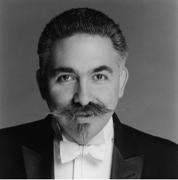

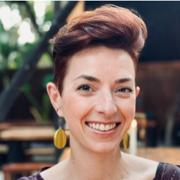
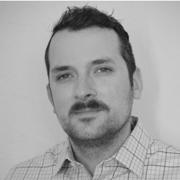
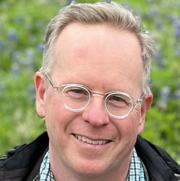

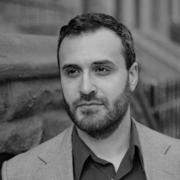
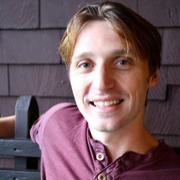
ERIC ALATORE , BASS is a renowned bass, best known for his nearly 30-year tenure with Chanticleer, where his deep, rich voice helped elevate the ensemble to international acclaim. He performed in major concert venues across six continents and contributed to nearly 60 recordings, earning three Grammy Awards. Since leaving Chanticleer, Alatorre continues to collaborate with exceptional groups, including Seraphic Fire, Skylark, Conspirare, the Thirteen, and the Leonids, sharing his remarkable artistry worldwide.
ADORE ALEXANDER , COUNTERTENOR hailed as “exceptional” by The Harlem Globe, he is an artist known for captivating performances that blend contemporary literature with classic gems. A graduate of Morehouse College, he was a soloist with the Glee Club and received his Master’s in Voice and Opera from Northwestern. He has performed works including Britten’s Canticle II, Duruflé’s Requiem, and Orff’s Carmina Burana. Adore champions new narratives that amplify marginalized voices and seeks collaborations to enrich the classical music landscape.
KELLY BALLOU , SOPRANO earned a Bachelor’s in Music Performance from the University of Louisville and a Master’s in Voice and Opera from the University of Cincinnati. Specializing in Baroque opera, she has performed with groups like Opera Lafayette and Bourbon Baroque. Career highlights include singing on the Civilization VI soundtrack and the Grammy-winning album Terry Riley: Sun Rings. Her choral credits feature performances with the San Francisco Symphony Chorus, Cappella SF, and international festivals.
DANIEL BRAKEFIELD , BASS is a Bay Area bass-baritone and AGMA member, passionate about music, food, and cocktails. He holds a bachelor’s degree from Western Illinois University and a master’s from California State University, East Bay. Brakefield has performed roles in Le Nozze di Figaro, Die Zauberflöte, and Gianni Schicchi, and appeared as a soloist in works by Haydn, Handel, and Beethoven. He has also recorded for Civilization and performed with the San Francisco Symphony, Volti, and Cappella SF.
MICKEY BUTTS , TENOR has performed over the last 30 years with Philharmonia Baroque Orchestra Chorale, San Francisco Symphony Chorus, Mark Morris Dance Group, Cappella SF, Artists’ Vocal Ensemble, Pacific Collegium, and Chalice Consort. He has appeared on recordings of the music of Dmitry Bortniansky, Guillaume Dufay, David Conte, and Civilization VI. His writing and editing about business, technology, wine, music, and travel have appeared in a wide range of leading publications.
YUHI AIZAWA COMBATTI , SOPRANO is a Japan-native and celebrated for her clear timbre and versatility in repertoire from Renaissance to Contemporary. She has performed with ensembles like the Kronos Quartet, New York Philharmonic, and Berkeley Symphony. A dedicated advocate for new music, Yuhi premiered Luciano Berio’s Sinfonia with UC Davis Orchestra and has premiered works by composers including Melissa Dunphy. She made her operatic debut at Spoleto Festival U.S.A. in Die Vogel.
ELLIOTT J AMES -GINN ENCARNACI Ó N , TENOR is a composer and conductor specializing in choral and operatic repertoire. He has soloed with the San Francisco Symphony, California Bach Society, and Dessoff Choirs. Frequently heard in choral contexts, he collaborates with ensembles in New York, Santa Fe, and the Bay Area, and has recorded for Delos and Decca labels. Elliott has also served as Artistic Director for Opera Theater Unlimited and Prodigal Opera Theatre, and was Composer in Residence for the International Orange Chorale in San Francisco.
SAM FAUSTINE , TENOR a San Francisco native, performs a wide range of genres, from Baroque opera to modern musical theatre. He recently toured with Broadway’s A Christmas Carol and appeared as a soloist with the San Francisco Symphony in Carmina Burana. Sam has performed across the US, Europe, and China in roles like Tony in West Side Story and Candide in Candide, and sings with ensembles like the Byrd Ensemble. He also fronts a QUEEN cover band as Freddie Mercury.
RHIANNON GUEVIN , SOPRANO born and raised in Northern California, she now resides in Sitka, Alaska, where she is Operations Director for the Sitka Fine Arts Camp. In addition to her role, she teaches classical and musical theater voice at the camp’s summer sessions and has adjudicated Alaska’s State Solo and Ensemble Music Festival. Rhiannon graduated summa cum laude from the University of Puget Sound with a BM in Vocal Performance. She has performed various roles, including Sophie in Der Rosenkavalier and Olive in The 25th Annual Putnam County Spelling Bee.
SEPP HAMMER , BASS Critics have praised his “masterful and expressive solos” (San Francisco Classical Voice) and “warm baritone gravity” (The Boston Globe). His recent concert engagements include Bach’s St. Matthew Passion (as Jesus) with California Bach Society, Handel’s Dixit Dominus, and Rutter’s Mass of the Children. He has performed with various ensembles, including Philharmonia Baroque Orchestra (Eupolemus) in Handel’s Judas Maccabaeus. Sepp holds a master’s in vocal performance from New England Conservatory and a bachelor’s in physics from UC Berkeley.
PETER KENTON , COUNTERTENOR is a professional singer, sound technician, and music teacher. He is a member of the Grace Cathedral Choir of Men and Boys and performs with American Bach, Clerestory, 21V, and Vox Humana SF. He has performed with Marin Oratorio, the Berkeley Symphony, Oakland Symphony, and San Francisco Symphony. Peter operates his business, Kenton Live Sound, providing sound services for events. He teaches music at Betty Reid Soskin Middle School and maintains a private voice studio in Oakland. He also hosts a podcast, What Sweeter Music.
BECKY L AU , SOPRANO from Hong Kong, is passionate about early and contemporary choral music. She has performed with professional choirs such as 21V, San Francisco Symphony Chorus, and Volti. Currently, she is a soprano section leader and soloist at Christ Church Los Altos. Recently, Becky was a soloist for Sonic Blossom, a participatory performance of Schubert lieder at the de Young Museum, exploring the power of song in fostering social connection. She also holds a doctorate in behavioral science and is a published author in psychology research journals.
CLAYTON MOSER , BASS was born and raised in Charleston, South Carolina. He is actively involved with multiple choirs on both coasts including the San Francisco Symphony, The Byrd Ensemble in Seattle, and the Taylor Festival Choir in Charleston, SC. The SF Conservatory of Music drew him to California to study Composition with Dan Becker for his Masters. He is an active Sound healer, utilizing his certificate in Sound, Voice, and Music Healing from the California Institute of Integral Studies in his Compositional Healing endeavors with clients.
SALLY MOUZON , ALTO is a Virginia native well-known to Bay Area audiences. She made her professional debut at the age of 16 as Cherubino in a Washington, DC production of The Marriage of Figaro. She appears as a soloist in opera and concert work, as well as being a frequent recitalist. A member of the Chorus, Ms. Mouzon made her solo debut at SF Opera as a Fisherwoman in Peter Grimes, and created roles in three world premieres with the company. As a member of Dobro Slovo, the National Slavic Honor Society, she founded a Slavic Chorus at the University of Virginia.
EMILIO PEÑA , TENOR is a San Francisco-based singer specializing in Gregorian Chant, Renaissance, and Baroque music. Originally from Fresno, CA, he began as a trumpet player before discovering his passion for singing in college. He holds a BM in Choral/Vocal Education from CSU, Long Beach, and has served as a cantor and section leader at Christ Cathedral and St. Dominic’s. This is Emilio’s first season with Vox Humana SF, where he’s excited to join such a talented ensemble.
RYAN S. PETERSON , TENOR is a San Francisco-based singer known for his performances in several Bay Area ensembles, including the San Francisco Symphony Chorus and Cappella SF. He has collaborated with the Kronos Quartet and occasionally performs with the Seattle-based Byrd Ensemble. In addition to his musical pursuits, Ryan holds a doctorate in computer science and works as a software engineer, balancing his passion for music with a career in technology.



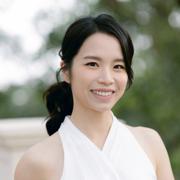
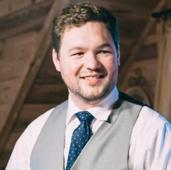


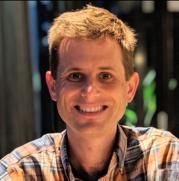
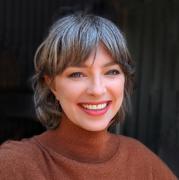

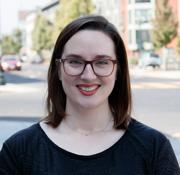




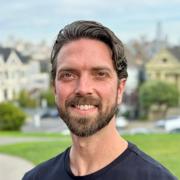
CORINNE RYDMAN , ALTO started singing in college when she no longer had access to a French horn. Since then, she's sung with San Francisco Opera Chorus, Utah Opera Chorus, and 42nd Street Moon among others. Roles include Donna Elvira in Don Giovanni, Volpino in Haydn's Lo speziale, and Nerone in L'incoronazione di Poppea In 2018, Corinne won the American Prize for her performance of songs by Florence Price. Workshopping new music is her favorite project.
TIM SILVA , TENOR sings regularly with Volti, Gaude, and San Francisco Symphony Chorus. He has soloed at the Berkeley Early Music Festival with California Bach Society. Tim has worked with Bay Area choirs for over ten years, working with the San Francisco Boys Chorus, Piedmont East Bay Children's Choirs, and Pacific Boychoir Academy. An active collaborator, he has performed and/or recorded with Artists' Vocal Ensemble, Chalice Consort, Kronos Quartet, Marin Symphony, ODC/Dance, Russian National Orchestra, San Francisco Choral Artists, and others.
COLBY SMITH , SOPRANO has performed across the United States with ensembles such as New York Philharmonic, Kronos Quartet, New Century Chamber Orchestra, and The Knights while at the Ojai Music Festival. Her interest in new music was sparked in 2008 while performing at the Spoleto Festival in Anthony Davis’ opera Amistad. She continues to explore the complexity of new music and joy of collaborating with composers as a member of Volti. A New Jersey native, Colby earned a Bachelor of Music in Vocal Performance from Westminster Choir College.
BLYTHE TAI , ALTO has over 25 years of experience singing in Bay Area choirs. She has performed as an ensemble member and featured soloist with local groups such as Volti, Convivium, Opera San Jose, Bay Area Classical Harmonies, and the San Francisco Lyric Chorus. An active volunteer, Blythe has served on the boards of the Piedmont East Bay Children’s Choir, Opera Theater Unlimited, and Bay Area Classical Harmonies. She studied music and English at UC Santa Barbara.
NATALIIA TER AG A POVA , SOPRANO graduated from the Alfred Schnittke Moscow State Institute of Music with degrees in voice and choral conducting. A laureate of several international vocal competitions, her repertoire spans from medieval to contemporary works. She has performed as a soloist with the MCU Chapel Choir, Blagovest Sacred Music Ensemble, and Intrada Vocal Ensemble, and has sung at international music festivals in the USA, China, Peru, Spain, and Slovakia. Since 2021, Natalia has been a soprano soloist at Calvary Presbyterian
KYLE TINGZON , COUNTERTENOR , a native of the Phillippines, has been praised for his “powerful countertenor” (The Wall Street Journal). After returning to The Glimmerglass Festival as Endimione in Cavalli's La Calisto, the coming season sees Kyle making debuts in Munich, Germany and Gävle, Sweden, as well as a return to New York City, as a soloist in John Adams' masterpiece, El Niño. He then debuts with Detroit Opera in a return to Goffredo in a production of Rinaldo and then returns to American Bach in the concert series "Bach's Paradise."
J OE Y VALKEVICH , BASS a native of Lafayette, CA, began his musical journey as a jazz trumpeter. He discovered choral music in high school under Bruce Lengacher and honed his vocal technique at Gonzaga University with Derrick Parker. After returning to California, he sang with the San Francisco Choral Artists under Magen Solomon for three years before joining San Francisco Renaissance Voices. A bass section leader at St. John’s Presbyterian Church since 2012, Joey is thrilled to sing with Vox Humana SF this season under Don Scott Carpenter.
CORBY YORK , BASS is a distinguished soloist recognized in the San Francisco Bay Area for his “powerful and expressive voice.” He currently sings with the Lakeside Presbyterian Church Chancel Choir and Vox Humana SF. His impressive career includes soloist roles with the San Francisco Gay Men’s Chorus, the San Francisco Symphony Orchestra, the Indianapolis Men’s Chorus, and the Indianapolis Symphony Orchestra. Corby’s artistry captivates audiences and elevates the choral and orchestral music scene throughout the region.
Are you passionate about music, the arts, and making a meaningful impact in the local community? Vox Humana SF is currently seeking dedicated and enthusiastic individuals to join our Board of Directors. As a board member, you will play a crucial role in shaping the future of our organization, helping to fulfill our mission of fostering artistic excellence and accessibility .
The Board is composed of a diverse group of compassionate and committed individuals who come together to provide strategic guidance, develop policies , and support fundraising efforts that sustain and expand our programs. We are particularly dedicated to building a Board that reflects a broad range of experiences and perspectives, with a focus on diversity across race, gender, age, ethnicity, national origin and sexual orientation.
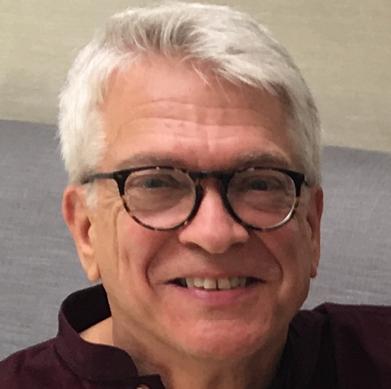
This is a unique opportunity to make a real difference in the arts community, while also gaining valuable experience in nonprofit governance, advocacy, and leadership. Whether you have experience in the arts, business, law, finance, or another field, your skills and insights could help shape the next chapter of Vox Humana SF.
For more information, please contact our Board President, Robert Ripps, at robert.ripps@icloud.com. We look forward to exploring how your talents can help us achieve our vision.
On behalf of the artists , staff , and board of Vox Humana SF thank you for attending this evening’s concert!
R OBERT R IPPS President

Volunteering for Vox Humana SF offers a unique opportunity to support a dynamic professional chorus dedicated to celebrating the beauty of the human voice. As a volunteer, you'll be an integral part of a vibrant community of artists and music lovers, helping to bring high-quality choral performances to life in San Francisco.
Volunteers assist in various roles, from concert operations and ushering to marketing, event planning, and administrative support. Your efforts contribute directly to the success of our performances and help ensure that choral music remains accessible and impactful in the community.
By volunteering, you’ll gain behind-the-scenes experience in the arts, connect with talented musicians, and enjoy the satisfaction of supporting cultural enrichment. Whether you have a background in music or simply a passion for the arts, your contribution plays a vital role in furthering Vox Humana SF's mission to inspire and engage audiences through exceptional choral music.
VoxHumanaSF.org/ambassador
Becoming a Singer Sponsor of Vox Humana SF is a unique way to support the artistic growth of one of San Francisco's most dynamic vocal ensembles. Your sponsorship helps sustain the professional quality of our performances, allowing us to present captivating choral music and innovative programming that resonates with audiences. By directly supporting the talented singers who bring these works to life, you ensure that the rich tradition of choral music continues to thrive in our community.
As a singer sponsor, your contribution covers the fees for professional vocalists who perform in our concerts, including world premieres, collaborations, and reimagined choral classics. This crucial support not only helps compensate the musicians fairly but also enables Vox Humana SF to attract top-tier talent, fostering a vibrant and inspiring musical culture in the Bay Area.
Sponsors are recognized in concert programs and on the Vox Humana SF website, and receive invitations to special events, rehearsals, and receptions with the artists. Sponsoring a singer is a meaningful way to champion the arts, whether in memory of a loved one, to celebrate a personal milestone, or simply to support the transformative power of choral music. Join us in shaping the future of vocal music in San Francisco.
Singer sponsorships begin at just $1,500.
